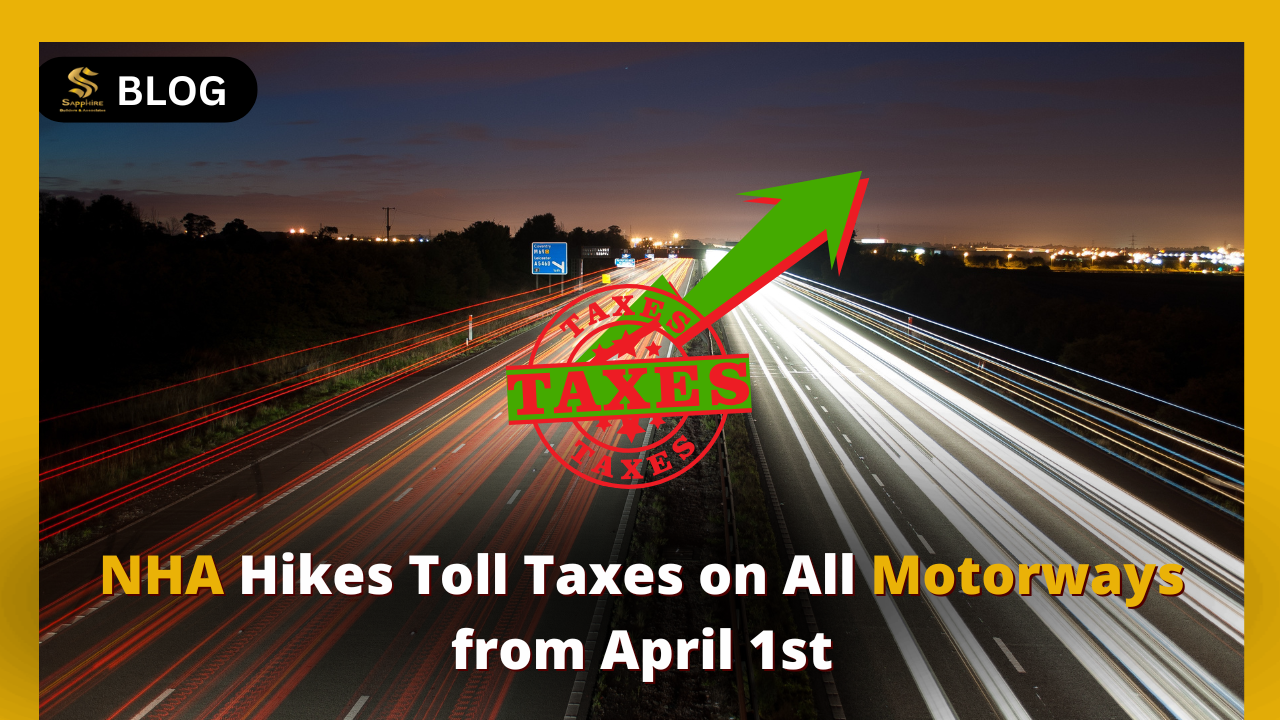
Share This Story, Choose Your Platform!
NHA Announces Toll Tax Hike: All you need to know about Motorways
The National Highway Authority (NHA) has announced yet another increase in toll tax rates for Pakistan’s national highways, motorways, and expressways. This marks the second hike of the year, and the revised tariffs will come into effect from April 1.
The move has sparked concern among frequent travelers and transport operators, as the increase in toll rates could lead to higher transportation costs. Let’s take a closer look at the updated toll charges and how they will impact various routes.
Revised Toll Tax Rates for Different Vehicles wrt National Highways
According to the latest notification, the new toll charges on National Highways are as follows:
- Cars: Rs70
- Wagons: Rs150
- Buses: Rs250
- Two- and Three-Axle Trucks: Rs300
- Large Articulated Trucks: Rs550
In addition to these general rates, toll fees on major motorways and expressways have also been revised.

You May Also Read
NHA makes M-Tag mandatory for all vehicles from January 1, 2024
Updated Toll Rates on Major Motorways and Expressways
Here’s a breakdown of the revised toll charges for cars on some of Pakistan’s most frequented routes along with a brief history of each motorway:
M1 Motorway (Islamabad to Peshawar)
- Previous Toll: Rs500
- New Toll: Rs550
The M1 Motorway, inaugurated in 2007, is a vital link between Islamabad and Peshawar. Spanning 155 km, it was the first motorway to connect the northern regions of Pakistan and played a crucial role in reducing travel time and enhancing connectivity.
M3 Motorway (Lahore to Abdul Hakeem)
- Previous Toll: Rs700
- New Toll: Rs800
The M3 Motorway, opened in 2019, connects Lahore to Abdul Hakeem over a distance of 230 km. It forms an essential part of the eastern route of the China-Pakistan Economic Corridor (CPEC), facilitating smoother and faster transportation.
M4 Motorway (Pindi Bhattian to Faisalabad and Multan)
- Previous Toll: Rs950
- New Toll: Rs1,050
The M4 Motorway, completed in 2019, connects the cities of Pindi Bhattian, Faisalabad, and Multan. Covering a total distance of 309 km, it significantly boosts agricultural and industrial connectivity within Punjab.
M5 Motorway (Multan to Sukkur)
- Previous Toll: Rs1,100
- New Toll: Rs1,200
The M5 Motorway, part of the CPEC project, was inaugurated in 2019. It stretches over 392 km, linking Multan and Sukkur, and is considered a major infrastructure development aimed at promoting trade between southern and northern regions.
M14 Motorway (Dera Ismail Khan to Hakla)
- Previous Toll: Rs600
- New Toll: Rs650
The M14 Motorway was inaugurated in 2022 and spans 285 km, connecting Dera Ismail Khan with Hakla, near Islamabad. It is part of the western route of CPEC and plays a pivotal role in the socioeconomic uplift of the region.
E-35 Expressway (Hassan Abdal to Havelian to Mansehra)
- Previous Toll: Rs250
- New Toll: Rs300
The E-35 Expressway, also known as the Hazara Motorway, was opened in 2020. Covering 180 km, it connects Hassan Abdal, Havelian, and Mansehra, providing a faster route to the scenic Hazara region.
Incase of more information on toll charges for other vehicles visit: https://nha.gov.pk/documents/topic/76
Impact on Travelers and Transporters
The toll increase is likely to burden regular commuters, transport companies, and goods carriers. With higher operational costs, there might also be a ripple effect on the prices of goods and public transport fares. Many motorists have expressed concerns over the frequent hikes, citing the already high cost of living. The NHA, on the other hand, justifies the increase as necessary for the maintenance and development of infrastructure.
Importance of Communication Infrastructure
Efficient communication infrastructure plays a pivotal role in the economic and social development of any country. Motorways and expressways not only reduce travel time but also improve the logistics of transporting goods and services, boosting trade and commerce. They connect remote areas to urban centers, enhancing accessibility and promoting regional development. With the increasing toll charges, maintaining high-quality road networks becomes essential to justify the cost to commuters and ensure sustainable growth.
Conclusion
As these revised toll rates take effect from April 1, travelers are advised to plan their journeys accordingly and keep extra cash handy for the increased charges. While the government aims to enhance road infrastructure, the frequent rise in toll rates remains a matter of debate.



